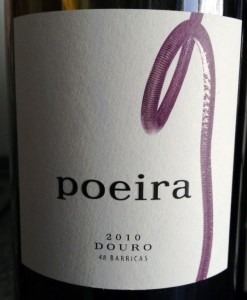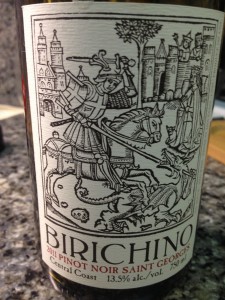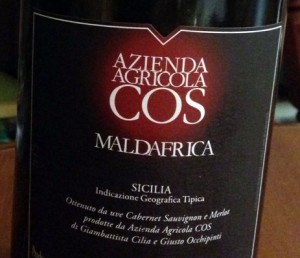If there’s one thing that can really draw me to a wine, it’s discovering a unique story behind the bottle. Not every wine is a labor of love, but for those that are, their points of distinction vary drastically from house to house: Vineyard managers growing international grapes like Cabernet Sauvignon versus native varieties like Portugal’s Touriga Nacional; winemakers who might choose to ferment wines using natural yeast; wines aged in amphorae rather than the more ubiquitous barrels and stainless steel; even technical matters like pressing grapes gently as whole clusters, or hand-picking them from the vines at night. All of these differences—whether grand gestures or subtle attention to detail—come through in the complexity of the final wine, each bottle a love letter from the winemaker to a place, a grape, or a year. These three bottles—love letters all—have caught my eye (and heart) recently:
 JORGE NOBRE MOREIRA POEIRA 2010 ($20)
JORGE NOBRE MOREIRA POEIRA 2010 ($20)
Produced in Douro in Portugal’s Pinhão region, Poeira is a field blend of over thirty varieties of indigenous grapes. Winemaker Jorge Moreira works as an enologist for several other wineries in the area, but Poeira—which means “dust” in Portuguese—is his personal project. Moreira uses the shade in his vineyards to his advantage: While many of the Douro wines generally rely on their tannins and extremely ripe grapes, Poeira relishes its acidity and allows itself to reflect the variations that occur with each vintage (in fact, the label itself changes from year to year). The wine is a beautiful opaque purple color, with soft aromas of sour cherry and white pepper; in the mouth, the acidity really shines. It’s soft and pleasant, with notes of blueberry, bramble, pepper, and cherry, with a great backbone of schist-like minerality elevating the wine.
 BIRICHINO SAINT GEORGES PINOT NOIR ($25)
BIRICHINO SAINT GEORGES PINOT NOIR ($25)
I find that many California pinot noirs can be overwhelmed by their dense, rich fruit, but somehow Birichino winemakers Alex Krause and John Locke have made that style work for them. The wine uses grapes grown on poor soil, with a few densely packed clusters of grapes on each vine, which—for this vintage—were picked in early fall. For the fermentation process, the winemakers decided to leave a small amount of these clusters whole, with the other grapes poured on top; they were then left for a cold soak before starting ferment naturally. Since the wine is aged in neutral barrels, the natural qualities of the wine really shine: its tight nose, with hints of cranberry, black pepper and vanilla extract, are elevated by its rich, warming palate, which washes across the tongue like a peppery raspberry coulis.
 AZIENDA AGRICOLA COS MALDAFRICA 2007 ($34)
AZIENDA AGRICOLA COS MALDAFRICA 2007 ($34)
Owners and winemakers Giambattista Cilia and Giusto Occhipinti founded COS in 1980 with the goal of using indigenous grapes and traditional wine-making practices seemingly forgotten in their native Sicily. In the Maldafrica, the grapes—a blend of cabernet sauvignon, merlot, and local Sicilian grape nero d’avola—are carefully harvested by hand before undergoing in fermentation in cement vats; they’re then aged for twelve months in oak and another six in-bottle before the winemakers will even release the wine. The result is beautiful, balanced wine with a rich nose, full of notes of blackberry, blueberry, and baking spices, with a lush, fruit-forward palate, balanced with rich tannins and acidity.
Originally published on SAVEUR.com
